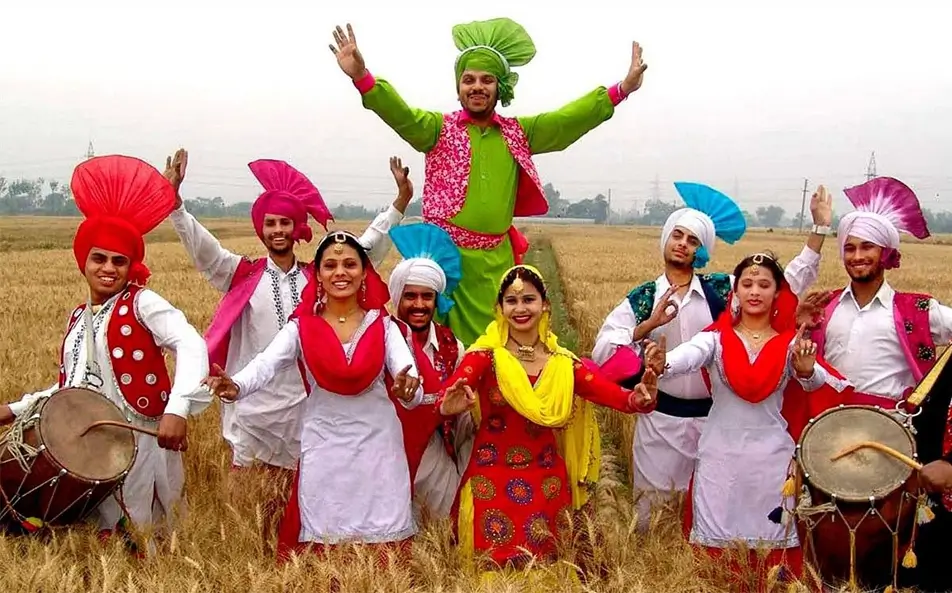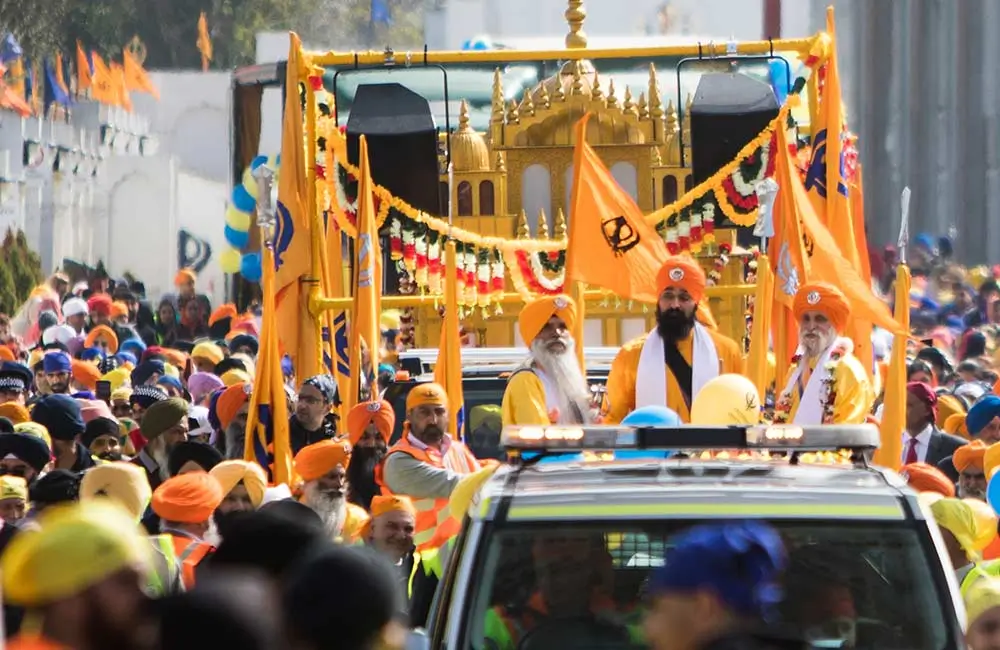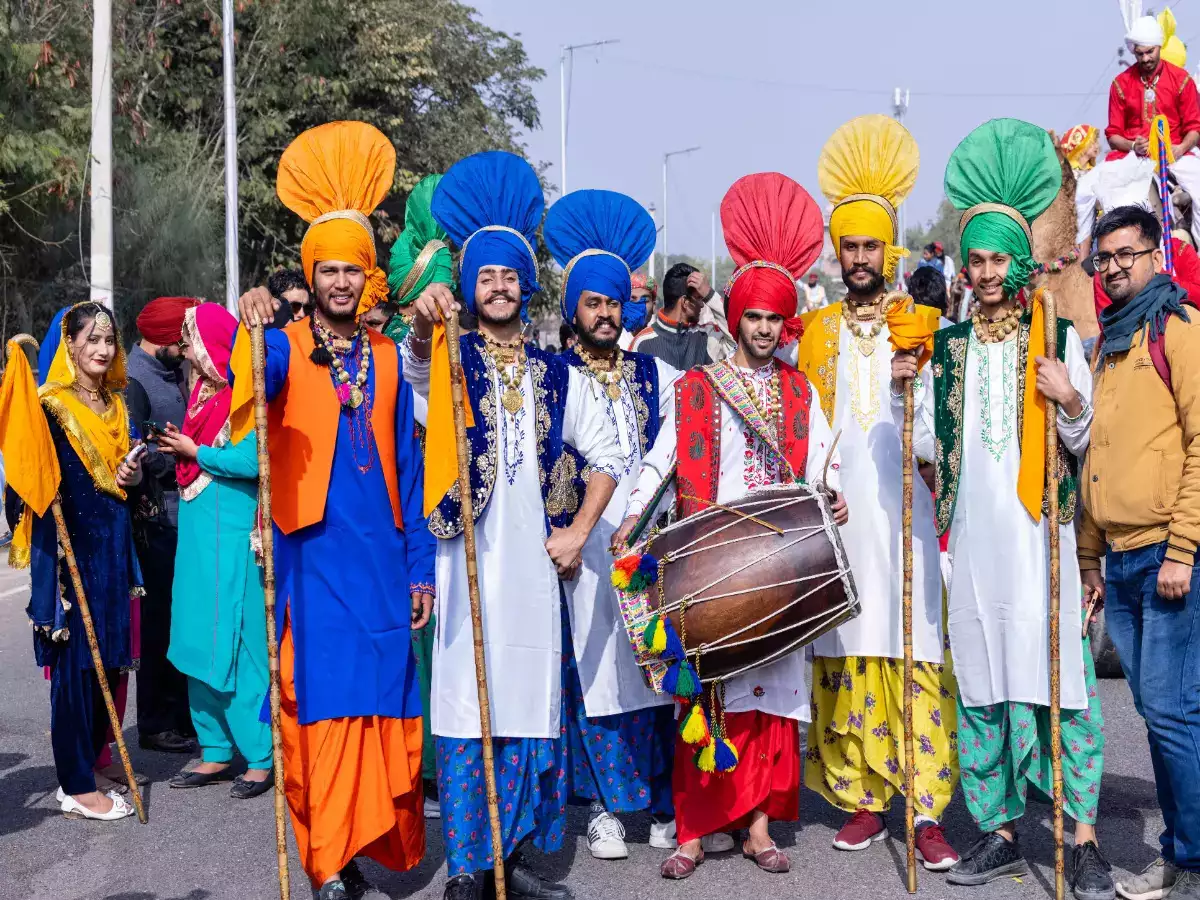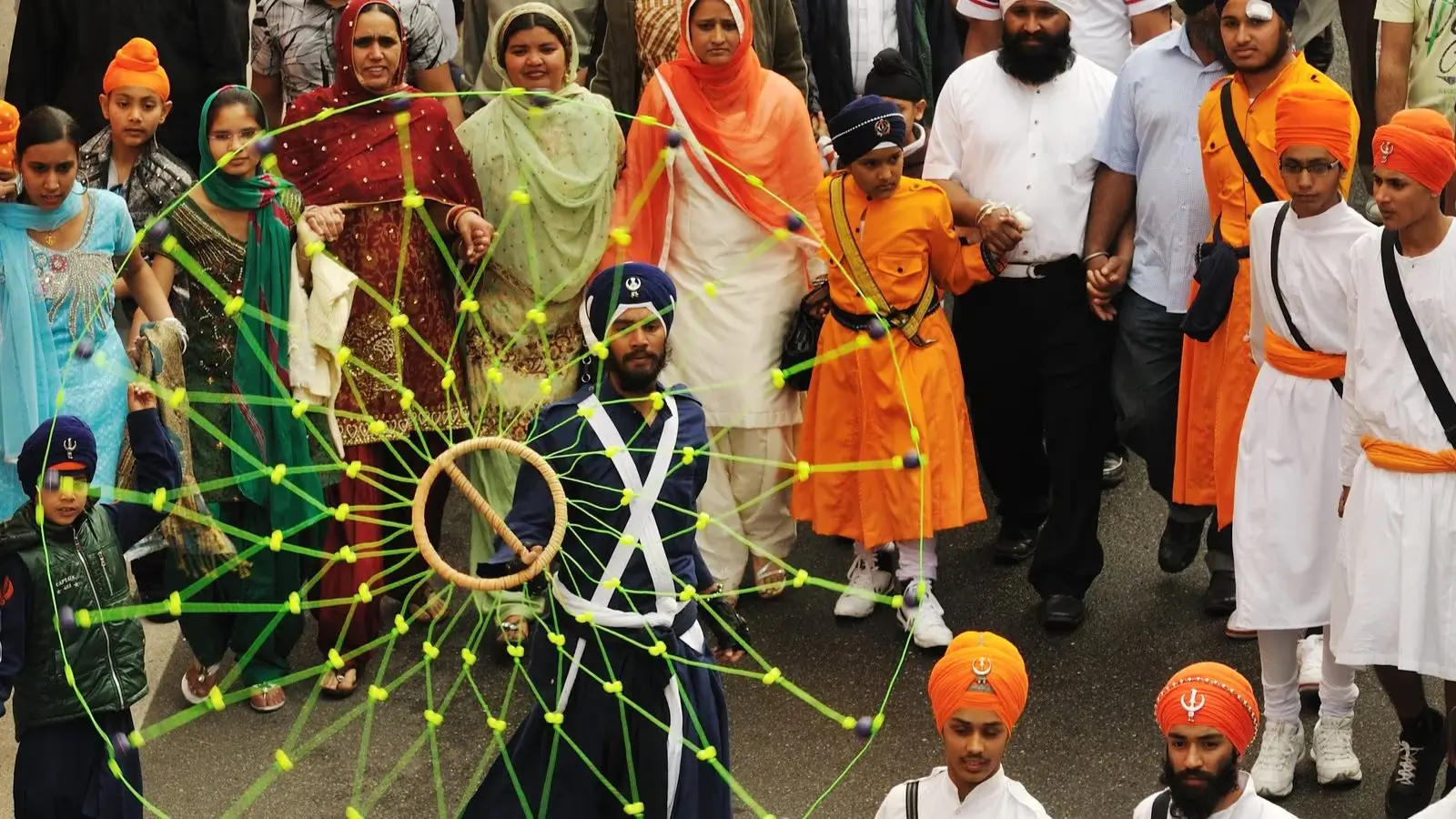
The United Indian

Baisakhi, also known as Vaisakhi, marks the beginning of the Punjabi solar new year and is one of the most significant festivals in Sikhism and for the Punjabi diaspora worldwide. Falling on the 14th of April every year, it coincides with the Vaisakhi Purnima, a full moon day in the Bikrami calendar. This vibrant celebration signifies the harvest season, a time of abundance and thanksgiving for the fruits of the earth. It's a joyous occasion marked by colorful processions, bhangra and gidda dances, community feasts, and religious observances.
Historical Significance and Religious Context
Baisakhi holds immense historical significance for Sikhs. It was on this day in 1699 that Guru Gobind Singh Ji, the tenth Sikh Guru, established the Khalsa, the Sikh community. The Khalsa ceremony imbued Sikhs with a sense of duty, equality, and courage, marking a pivotal point in Sikh history. Baisakhi also commemorates the birthdays of several prominent Sikh Gurus, including Guru Tegh Bahadur Ji, the ninth Guru.
Embracing Abundance - Celebrating the Harvest On Baisakhi
Baisakhi, celebrated with exuberance and joy, holds a special place in the hearts of millions as a quintessential harvest festival. Originating from the agrarian roots of India, Baisakhi marks the culmination of months of hard work and dedication of farmers who toil tirelessly in the fields. As the sun bathes the earth in its golden glow, signaling the arrival of the harvest season, communities come together to rejoice in the abundance of nature's bounty.
The significance of Baisakhi as a harvest festival transcends mere agricultural rituals; it embodies the deep connection between humans and the land they cultivate. For farmers, Baisakhi is a time of celebration and gratitude, as they reap the fruits of their labor, witnessing the fruition of seeds sown months ago. It is a moment of fulfillment and satisfaction, a testament to the resilience of the human spirit and the wonders of nature's cycles.
The celebrations of Baisakhi are infused with a sense of renewal and hope, as communities gather to give thanks for the blessings bestowed upon them. Fields adorned with lush crops become the backdrop for colorful festivities, with music, dance, and feasting becoming the order of the day. The air is filled with the aroma of freshly harvested produce, and laughter reverberates through the countryside as people come together to share in the joy of the season.
Baisakhi also serves as a reminder of the importance of sustainable agriculture and environmental stewardship. As we celebrate the abundance of the harvest, we are reminded of the need to respect and preserve the natural resources that sustain us. It is a time to reflect on our relationship with the land and to strive for harmony with nature, ensuring that future generations can continue to reap the benefits of the earth's bounty.
Festivities and Celebrations
Baisakhi is a vibrant explosion of colors, music, and merriment. Here's a glimpse into the celebratory tapestry of this joyous festival:
Colorful Processions: In Punjab, the heartland of Sikhism, the celebrations commence with early morning visits to gurudwaras, where devotees offer prayers and participate in kirtans (devotional songs). The highlight of the day is the vibrant Nagar Kirtan, a grand procession led by the Panj Pyare (Five Beloved Ones), adorned in traditional attire, carrying the Sikh flag and the Guru Granth Sahib, the holy scripture of Sikhism. Devotees chant hymns, sing praises, and perform gatka, a traditional Sikh martial art form, adding to the festive fervor.
Bhangra and Gidda: The energy of Baisakhi is palpable in the electrifying beats of bhangra and gidda. Bhangra, a vigorous dance form traditionally performed by men, showcases their strength and agility. Gidda, a more graceful dance performed by women, reflects joy and merriment. These energetic dances spill onto the streets, captivating everyone with their infectious enthusiasm.
Community Feasts (Langars): Langars, the community kitchens set up by Gurdwaras (Sikh places of worship), are a core principle of Sikhism. During Baisakhi, langars provide an opportunity for people from all walks of life to come together and share a meal. This communal dining experience fosters a sense of brotherhood and equality, reflecting the core Sikh values of sewa (selfless service) and langar (community kitchen).
Religious Observances: Baisakhi also holds religious significance for Sikhs. Special prayers are held at Gurdwaras, commemorating the establishment of the Khalsa and the birthdays of the Gurus. Sikhs reflect on their faith and rededicate themselves to the Sikh principles.
Baisakhi Beyond Punjab
Baisakhi transcends geographical boundaries and holds significance for the Punjabi diaspora worldwide. Wherever Punjabis have settled, they carry the traditions of Baisakhi forward, albeit with local adaptations. From Canada and the United States to the United Kingdom and Australia, vibrant Baisakhi celebrations resonate with the spirit of harvest, thanksgiving, and community.
Significance in the Modern World
In today's fast-paced world, Baisakhi serves as a reminder of the importance of our roots and traditions. It's a time to connect with loved ones, celebrate the simple joys of life, and appreciate the bounty of nature. The emphasis on community and equality during Baisakhi resonates deeply, offering a message of unity and inclusivity that transcends cultures and religions.
In essence, Baisakhi is much more than a mere harvest festival; it is a celebration of life, community, and spiritual renewal. Through its myriad rituals, customs, and symbolism, Baisakhi festival encapsulates the ethos of Sikhism and the vibrancy of Indian culture. It's a celebration of new beginnings, expressing gratitude for nature's blessings, and cherishing the bonds of togetherness. The festival serves as a heartwarming reminder of the simple joys in life and the importance of sharing them with our loved ones. As we come together to rejoice in the abundance of nature and the blessings of the divine, let us also reflect on the timeless values of compassion, equality, and gratitude that lie at the heart of this joyous occasion.
Read more in Recent Events
Jul 18, 2025
TUI Staff
Jul 15, 2025
TUI Staff
Jul 14, 2025
TUI Staff

Stay Tuned with The United Indian!
Our news blog is dedicated to sharing valuable and pertinent content for Indian citizens. Our blog news covering a wide range of categories including technology, environment, government & economy ensures that you stay informed about the topics that matter most. Follow The United Indian to never miss out on the latest trending news in India.
©The United Indian 2024












